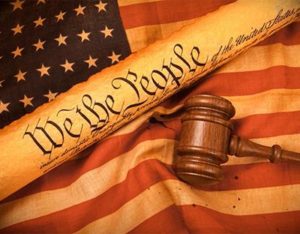I feel this need to come to the defense of our Founding Fathers over the work they did to create a “more perfect Union.”
The very words of the document they crafted to form the framework of our government — “more perfect Union” — recognize that the founders knew they hadn’t reached perfection.
I’ll tell you this: They came pretty close to it.
Accordingly, I also believe the founders would be horrified at how the political winds are blowing these days and, for that matter, have blown for some time. They would disapprove mightily of a president who seeks to usurp legislative authority by blocking Congress’s oversight responsibilities. They would bristle at the influence being exerted on our national election by foreign powers and the president’s seeming acceptance of it.
The founders would not like one bit the introduction of religion into our political debate, the notion being argued by many that this is a “Christian nation,” and who are horrified at officeholders who swear an oath to defend the Constitution by placing their hand on a holy book other than the Bible.
Our founders knew of the circumstances that brought their ancestors to this land in the 17th and 18th centuries. They were fleeing religious persecution. They did not want their government telling them how to worship. So, the founders ensured that the Constitution they would write would state specifically that Congress shall make no law that establishes a state religion and that citizens were free to worship — or not worship — as they saw fit.
They wrote language into one of the articles that declared no office seeker should be held to a “religious test.”
Yes, the founders argued mightily as they crafted the Constitution over whether it should contain any reference to religion. The document refers to the “Creator” and officeholders swear to “God” to defend and protect the Constitution.
It is the secular nature of the Constitution, though, that protects us against the imposition of radical religious doctrine in our government — be it radical Christian, radical Muslim or radical anything.
The Constitution as it was ratified initially did have some serious flaws. It didn’t allow women to vote. It failed to outlaw the enslavement of human beings. It didn’t allow for the direct election of senators by citizens.
In the years since then, though, the descendants of those great men saw fit to improve the Constitution by fixing those egregious errors.
But the Constitution has held up over the course of 230 years. The separation of powers lined out in the document have kept the president in check. The Constitution has enabled Congress to rise up against abuses of power by the executive branch through impeachment. Indeed, we just might be on the verge of seeing yet another congressional uprising.
We have survived constitutional crises. We have done so because, as Gerald Rudolph Ford said upon ascending to the presidency in a time of monumental crisis that forced the resignation of his immediate predecessor, “Our Constitution works.”
